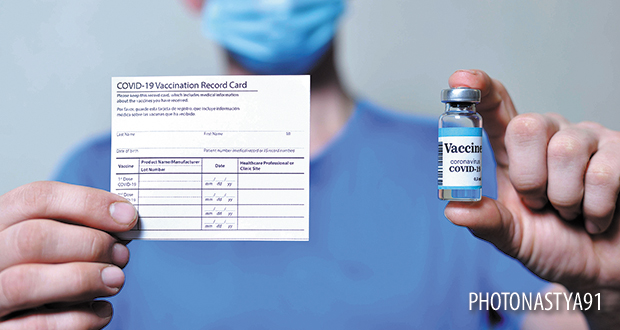
It certainly makes for a good sound bite, especially as outbreaks rage across India.
But intellectual property attorneys doubt that waiving patent and other IP protections for COVID-19 vaccines would turn the tide on the global pandemic.
On May 5, President Joe Biden and U.S. Trade Representative Katherine Tai voiced support for a so-called TRIPS waiver, grounded in the World Trade Organization’s Agreement on Trade-Related Aspects of Intellectual Property Rights, which can be invoked during a public health crisis.
“The Administration believes strongly in intellectual property protections, but in service of ending this pandemic, supports the waiver of those protections for COVID-19 vaccines,” Tai said in a statement.
For Joanna T. Brougher, a Massachusetts-licensed patent attorney who practices with BioPharma Law Group in Fairport, New York, compulsory licensing and IP waivers have long been part of the syllabus in a course she first taught at the Harvard School of Public Health and has since brought to Cornell University.
Thanks to the pandemic, that decade’s worth of theoretical, academic discussions has become all too real, she says.
But is the COVID-19 pandemic the type of public health emergency that warrants the ignoring of patent rights?
“I don’t think compulsory licensing or IP waivers are going to be the solution,” Brougher says.
The issue is the nature of the Moderna and Pfizer vaccines and how they are produced, she explains.
“I don’t think [IP waivers are] going to yield safe products for people to use, and more importantly, I don’t think it’s going to speed up any timelines,” she says. “As a matter of fact, I think it’s going to be exactly the opposite.”
Brougher cites the difference between small molecule drugs derived from chemicals and biologics such as the Moderna and Pfizer vaccines, which are extracted from living organisms.

As long as you have the formula, chemical drugs, from aspirin on up, are easy to manufacture from almost any lab in the world, she says.
By contrast, even Pfizer and Moderna themselves have found it challenging to replicate the process of manufacturing batches of their COVID-19 vaccines.
“They are biological organisms,” Brougher says. “The cells have to be grown; they have to be harvested, then purified, then formulated.”
While mRNA has been around for at least a decade, Pfizer and Moderna’s vaccines are a new use of the technology, meaning very few people know how to manufacture them, Brougher says.
“A big part of the manufacturing process for these types of vaccines or any kind of vaccines is a trade secret,” she says. “So, even if you have the patents, you may not be able to actually put the pieces together because there’s a lot of missing information.”
One need look no further than the Baltimore plant Emergent BioSolutions to see how horribly wrong an incomplete understanding of the process can go. Up to 15 million doses of Johnson & Johnson’s vaccine were contaminated when workers conflated the ingredients of two different coronavirus vaccines being manufactured at the Emergent facility.
“Just setting up the facilities that can host this manufacturing process is going to be a big hurdle to overcome,” Brougher says. “It’s not just as easy as, ‘Hey, here are the patents; go ahead and start making it.’”
Boston IP attorney Peter C. Lando agrees, calling the signals from the Biden administration “largely a symbolic move” — and a counterintuitive one.
“It’s really quite the opposite of what should be the answer,” he says. “The support for intellectual property and the incentives that it provides is what led to the development of the vaccines and the other therapies that we’ve all benefited from.”
Lando notes that the Biden administration’s announcement — perhaps designed to gin up the requisite unanimity among members of the World Trade Organization — has instead met with resistance, most notably from leaders in Germany and France.
Lando found the administration’s move particularly disappointing due to the apparent political calculus that was made to jump at an idea suggested by a segment of the Democrat Party rather than a serious solution to the problem.
“It’s without teeth, and it’s not going to result in anything,” Lando says. “It might have been better for them to say, ‘I hear you, [but] that’s not the solution’ and educate people about what the solutions might be.”
To wit, on an investors’ call, Moderna CEO Stéphane Bancel commented that he “didn’t lose a wink of sleep” over the Biden administration’s pronouncements, given the difficulties of producing an mRNA vaccine, Lando notes.
The hardline approach to waiving IP rights makes even less sense, given that Moderna has already said it has no intention of enforcing its vaccine patents against other companies during the pandemic, Lando and Brougher say.
“It will be much faster if we just have these companies manufacture the product and somehow get it out to developing countries, either through some negotiated deals or through corporate donations,” Brougher says.
Lando suggests part of the answer may be to lessen trade restrictions for vaccines. He also notes the 100-plus licenses that have already been granted for vaccines and related technologies.
Leaning more on licenses makes sense “because we need these companies that have the know-how, with the proprietary information, to remain involved,” Lando says.
Yet Brougher won’t be joining the chorus of patent attorneys and industry insiders who think any weakening of IP rights is inevitably going to be a catastrophe that discourages innovation.
“I think there is a time and place for compulsory licensing. I just don’t think it’s this current situation,” Brougher says.
 New England Biz Law Update
New England Biz Law Update
